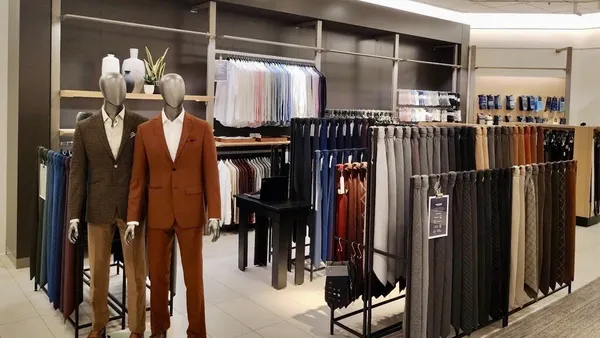Dive Brief:
-
Boll & Branch, a direct-to-consumer (DTC) home goods brand, announced on Monday it received $100 million in a funding round led by private equity firm L Catterton.
-
The company said it plans to use the funds to expand both its selling channels and its product assortment into adjacent categories within the home goods sector, according to a company press release.
-
The brand's co-founders, Scott Tannen and Missy Tannen, will continue to lead the business, per the release.
Dive Insight:
Boll & Branch's fresh funding will not only allow the company to expand into new product categories, but also let it grow its retail and wholesale businesses.
The brand seemingly made sense for L Catterton to invest in as the private equity firm has made previous investments in the home goods category, including in RH (formerly Restoration Hardware) and other direct-to-consumer brands like ThirdLove, Rhone and Kopari.
The investment also comes at a time when sustainability is top-of-mind to brands and consumers alike. Boll & Branch says its products are made from ethically-sourced materials, and don't use harmful chemicals, GMOs or pesticides. Boll & Branch also said it not only sees sustainability as a main priority, but also sustainable income for its workers.
These values may bode well with consumers, as 75% reported being concerned about helping the planet in their day-to-day lives, according to a Gartner L2 report. The brand's environmental values and its Fair Trade certification may further entice Gen Z shoppers, who have an estimated $143 billion in spending power, as the demographic is concerned about sustainability and equality among people, according to OC&C Strategy Consultants.
"Boll & Branch's approach capitalizes on several compelling trends including the emergence of authentic, pure, and chemical free products that can be traced back to their origin, as well as consumers' heightened focus on healthy living," Nik Thukral, managing partner at L Catterton, said in a statement.
Other brands in the home goods space have built sustainability into their businesses as well. Parachute places a focus on using more natural materials, notably in its mattresses, which are made from materials such as New Zealand wool and 100% organic cotton, and also exclude adhesives, petrochemicals and chemical flame retardants. DTC brands Fernish and Feather, on the other hand, built their businesses around a subscription-based, rental model as the circular economy becomes more widely accepted.
"Our success is proof that a focus on sustainability and positive social impact can go hand-in-hand with a high-growth, profitable business," Boll & Branch CEO Scott Tannen said in a statement.













